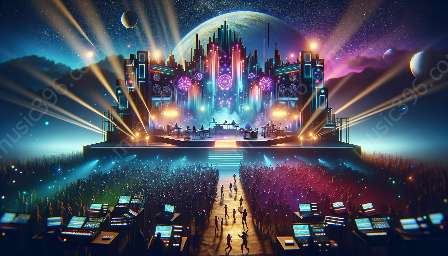How Does the Concept of Modularity Influence the Design and Creation of Electronic Music Instruments and Systems?
Modularity plays a significant role in shaping the design and creation of electronic music instruments and systems. This concept refers to the ability to break down a complex system into smaller, interconnected modules that can be easily modified or replaced. In the context of electronic music, modularity offers flexibility, scalability, and customization, allowing musicians and designers to create unique and innovative instruments and systems. This article explores the impact of modularity on electronic music and its compatibility with experimental techniques in electronic music.
The Concept of Modularity in Electronic Music
Defining Modularity
Modularity in electronic music refers to the practice of creating and using modular synthesizers, which are comprised of individual modules that perform specific functions such as generating sound, processing signals, and controlling parameters. These modules can be connected in various configurations, enabling musicians to build custom setups tailored to their specific needs and artistic visions.
Flexibility and Customization
Modular synthesizers offer unparalleled flexibility and customization compared to traditional, fixed-architecture synthesizers. Musicians can mix and match modules from different manufacturers, create complex signal flow paths, and experiment with unconventional sound generation and processing techniques. This level of customization empowers musicians to push the boundaries of sound design and composition in electronic music.
The Influence of Modularity on Instrument Design
Scalability and Expandability
Modularity facilitates the design of electronic music instruments that are scalable and expandable. Manufacturers can develop modular instruments that allow users to start with a basic setup and gradually add new modules to expand the instrument's capabilities. This approach encourages exploration and experimentation, as musicians can continuously evolve their instruments to adapt to their changing creative needs.
Interconnectivity and Integration
Modular instruments are designed to be interconnected seamlessly, enabling users to create integrated systems that combine multiple modules from different manufacturers. This interoperability fosters a vibrant ecosystem where musicians can access a diverse range of modules and integrate them into their setups to achieve unique and innovative sonic palettes.
The Role of Modularity in System Design
Modular Synthesis Systems
Modularity extends beyond individual instruments to encompass entire synthesis systems. Musicians and sound designers can build modular synthesizers ranging from compact setups for live performances to elaborate systems for studio production. The modular nature of these systems allows for dynamic reconfiguration and adaptation, empowering users to explore new sonic territories with each iteration.
Experimental Techniques and Innovation
Modularity encourages the exploration of experimental techniques in electronic music. By providing a platform for unconventional signal routing, sound manipulation, and control mechanisms, modular systems inspire musicians to push the boundaries of traditional sound synthesis and embark on sonic explorations that challenge established norms and conventions.
Compatibility with Experimental Techniques in Electronic Music
Open-Ended Possibilities
Modularity aligns closely with the ethos of experimental electronic music, which emphasizes open-ended exploration and the pursuit of novel sonic experiences. The customizable nature of modular instruments and systems allows musicians to adopt unconventional approaches and delve into uncharted sonic territories, aligning with the spirit of experimentation prevalent in electronic music.
Creative Freedom and Expression
Experimental techniques in electronic music often involve unconventional sound generation, processing, and performance practices. Modularity grants musicians the creative freedom to craft instruments and systems that support their innovative sonic explorations, empowering them to express their artistic vision without constraints imposed by traditional, fixed-architecture instruments.
Conclusion
The Impact of Modularity on Electronic Music Instruments and Systems
Modularity profoundly influences the design and creation of electronic music instruments and systems, offering unparalleled flexibility, scalability, and customization. In the realm of experimental electronic music, modularity aligns perfectly with the ethos of open-ended exploration, innovation, and creative freedom, fostering a vibrant landscape of sonic experimentation and boundary-pushing creativity.


